This article was co-authored by Alex Dimitriu, MD. Alex Dimitriu, MD is the Owner of Menlo Park Psychiatry and Sleep Medicine, a clinic based in the San Francisco Bay Area with expertise in psychiatry, sleep, and transformational therapy. Alex earned his Doctor of Medicine from Stony Brook University in 2005 and graduated from the Stanford University School of Medicine's Sleep Medicine Residency Program in 2010. Professionally, Alex has dual board certification in psychiatry and sleep medicine.
There are 8 references cited in this article, which can be found at the bottom of the page.
This article has been viewed 7,127,854 times.
If you struggle to fall asleep quickly, you're not alone! Fortunately, there are plenty of solutions you can try. With a few changes and some consistency, you can fall asleep fast every night!
Steps
Falling Asleep with Relaxation Techniques
-
1Try counting while taking slow, deep breaths. Counting sheep is a well-known trick, but you can improve on it by taking deep, controlled breaths as you count. Inhale as you count to 4, hold your breath for a few seconds, then slowly exhale for about 8 seconds. Try to focus only on counting and breathing to clear your mind and slow your heartbeat.
-
2Try visualizing relaxing scenery. You could also try other meditative techniques, like visualizing peaceful scenes. Think of a place where you feel completely at ease, like a beach or a relaxing place from your childhood. Focus only on being there, and imagine it with as many sensory details as possible.Advertisement
-
3Try progressive muscle relaxation. Start by breathing in and tensing one muscle group, like your toes. Feel them contract, and, as you exhale and release the contraction, imagine your tension flowing away. Continue to contract and relax the muscles in your legs, abs, chest, arms, and head.
- As you release each muscle, visualize more and more tension leaving your body.
-
4Take a hot soak. You might find it relaxing to take a hot bath or shower before bedtime. In addition, going from a hot bath to a cooler bedroom will lower your body temperature, which helps induce sleep.
- Make sure the water is above 100 °F (38 °C) for the best results. Water that is too cool won't provide the same benefits as hot water.
- Hot baths are better for inducing relaxation, but regardless of whether you take a hot bath or shower, make sure that you enjoy the water for at least 20 minutes. Also do it at least one hour before bed to allow your body to cool.
- A cold bath or shower will cause your body temperature to lower even more drastically, however many people may find the cold water uncomfortable.
-
5Read a book. Reading can reduce stress and help your mind to unwind. To avoid getting too excited, go for a book you've already read and steer clear of horror or action books. Remember to pick up an old-fashioned paper book, since electronic devices can keep you from falling asleep.
-
6Write in a journal. If you find that your mind simply won't turn off or you struggle with daily stress, try writing in a journal. Write about your day's events and list things that have been causing stress. Getting them out of your head and onto paper can help you let go of them and have an easier time falling asleep.
Improving Your Sleep Environment
-
1Keep your room dark. Keep lights dim an hour before bedtime, and turn off all overhead lights, night lights, and lamps when you go to bed. Any bright light (not just electronic devices' screens) can trick your body into thinking it's too early in the day for sleep.[1]
- If you want to read or write before bed, try using a small book light rather than a desktop lamp or overhead light. Bluish light can keep you awake, so go for a bulb that gives off a warm glow. Red light bulbs are a great choice.[2]
- If you have a bright clock, use the dimmer option to lower the brightness of the screen. Additionally, turn it away from the bed so you won't be tempted to check the time.
-
2Minimize distracting noises. If you can, keep noise in and around your room to a minimum at night. For example, if you have an old-fashioned clock that ticks loudly and keeps you awake, replace it with a silent one. If you share your home with anyone else, request that they keep noises like talking, music, or TV shows at a low volume while you are trying to sleep.[3]
-
3Cool off your room. Lowering your core body temperature helps induce sleep, so try lowering your thermostat. Setting the temperature between 60° and 70° F (15.5°-21° C) could do the trick. Set it low enough that it feels cooler than room temperature, but not so low that you're shivering.[4]
-
4Adjust your pillows to keep your body aligned. Ideally, you want to sleep so that your neck is in a straight line with your hips. Try placing a pillow between your knees to keep your hips in a neutral position. If necessary, buy new pillows if your current ones aren't keeping you comfortable and aligned.
- Try to sleep on your back or side. These positions are best for your spine and can offer more restful sleep. Sleeping on your back or spine also keeps your airways open, which can help alleviate symptoms of sleep apnea.[5]
- If sleep apnea is preventing you from getting a full night's sleep, talk to your doctor. They may recommend a sleep study for you to see if you need a CPAP machine.
-
5Try using a white noise machine. It's tough to fall asleep if you live near a busy road or hear other annoying sounds after bedtime. You could get a white noise machine or play recordings of nature sounds, like waves crashing or humpback whales singing.
- You could also listen to soft, relaxing music, like classical music or contemporary ambient tunes.
- Try not to fall asleep wearing headphones, since they could slip around and wake you up after you fall asleep. Use a music playing device with speakers instead.
-
6Invest in a mattress pad and new sheets. Your sleeping surface might be keeping you from drifting off to sleep. If your mattress is too firm, getting saggy, or pokes you, flip it over or cover it with a foam pad. If you have scratchy or uncomfortable sheets or blankets, get softer ones.
- If you're on a budget, look online or in outlet stores for high quality products at affordable prices.
- Look for sheets with a high thread count. The higher the thread count, the softer the sheets.
-
7Read a book in bed if you can't fall asleep. Staying in bed doing nothing when you're having trouble falling asleep can stress you out and keep you wide awake. If you've tried to doze off for about 20 minutes with no luck, try reading a little. Reading in bed can distract you from your thoughts and help you feel drowsy.
- Read from a print book instead of something with a screen, if you can. The light from electronic screens can keep you awake.
Trying Food, Beverages, and Supplements
-
1Have whole grain or high-carb snack before bed. Foods that are high in carbohydrates can help you feel warm, sleepy and comfortable. Having a heavy meal before bed is no good, but you don't want to go to bed hungry, either. If your growling stomach is keeping you up, try a bowl of low-sugar whole grain cereal, toast with jam or jelly, vanilla wafers, or whole wheat crackers with cheese.
-
2Indulge in a warm drink. Sipping on something warm and calming can relax your body and mind. A cup of warm milk or herbal tea are great options. Herbal teas made from chamomile or lavender can be particularly effective sleep aids.
- Avoid anything with caffeine, and don't drink too much of anything at bedtime. Drinking a lot just before bed could cause you to wake up needing a bathroom break.
-
3Take a supplement. Like chamomile tea, a chamomile supplement could help you doze off faster.[6] You could also try valerian root, which is one of the oldest herbal remedies recommended for insomnia.
- Talk to your doctor before taking any herbal supplements, especially if you take a prescription medication.
-
4Try melatonin. Melatonin is the hormone responsible for inducing sleepiness when it gets dark outside. There isn't much known about long-term use of melatonin supplements, but taking one nightly before bed for less than a month is safe.
- Melatonin can also be found in bananas, oats, pineapple, oranges, tomatoes, and cherries.
- As with herbal remedies, consult your doctor before taking melatonin supplements.
Making Lifestyle Changes
-
1Stick to a regular routine. Going to bed and waking up at the same times every day helps your body to know when it should get tired. Do your best to be in bed by the same time every night and set an alarm for the same time every morning–even on the weekends![7]
-
2Treat your bedroom like a relaxing sanctuary. Avoid doing work or other activities in your room. Treat your room as a strictly sleeping sanctuary to help train yourself to associate it with a good night's sleep.
- Since it's a sleeping sanctuary, keep your room tidy and inviting. Keep it clean and smelling fresh, and change your sheets every week or two.
- Use bedclothes that make your bed soft and cozy. Try things like high thread count sheets, down comforters, and memory foam mattress toppers. You can also experiment with using extra pillows.
-
3Turn off all electronics an hour before bed. Watching TV or using laptops, cell phones, or tablets can all keep you from falling asleep. If you have trouble falling asleep, try removing all electronics with bright screens at least an hour before bed.
- Besides the bright light from the screens, browsing social media can cause stress and raise anxiety levels. Say no to Facebook, Twitter, Instagram, email, texting, and any other social media outlet at least an hour before bedtime.[8]
- If you have to look at a screen before bed, use the lowest possible brightness setting.
-
4Eat dinner earlier. A heavy meal right before bed can cause a sugar spike, and a digestive system in full gear can keep you from getting comfortable. Try eating dinner at least 3 hours before you go to bed.
- Avoid spicy foods at dinner time, since these can upset your stomach and raise your body temperature.[9] Some people also experience nightmares or exceptionally vivid dreams after eating spicy foods.
-
5Don't work out at night. Avoid working out within 4 hours of heading to bed and switch your workout routine to the morning. Getting exercise during the day is great for your sleeping routine, but evening workouts can keep you from sleeping soundly.[10]
- Working out at night increases your body temperature, speeds up your heart rate, and stimulates chemicals in your brain that keep you from getting sleepy.[11]
-
6Avoid caffeine late in the day. Don't drink caffeine or other stimulants within 6 hours of bedtime.[12] If you've cut caffeine in the evenings but still have trouble falling asleep, consider quitting it altogether.
- It takes time for your body to process caffeine, so a cup of coffee can still affect your system within 6 hours of drinking it.
-
7Try not to nap. When you're totally exhausted and it's been a long day, the most appealing thing to do is to take a nap. However, naps can alter your sleep cycle and make it harder for you to fall asleep at night. If you absolutely must take a nap, try to keep it early in the day and limit it to 20 minutes or less.
-
8Talk to your doctor. If difficulty falling asleep is interfering with your ability to function or making you depressed, it's time to schedule a doctor's appointment. If you take any medications, you should also ask to your doctor if they interfere with sleep and if alternatives are available.[13]
Expert Q&A
-
QuestionHow do you fall fall asleep in 5 minutes?
 Alex Dimitriu, MDAlex Dimitriu, MD is the Owner of Menlo Park Psychiatry and Sleep Medicine, a clinic based in the San Francisco Bay Area with expertise in psychiatry, sleep, and transformational therapy. Alex earned his Doctor of Medicine from Stony Brook University in 2005 and graduated from the Stanford University School of Medicine's Sleep Medicine Residency Program in 2010. Professionally, Alex has dual board certification in psychiatry and sleep medicine.
Alex Dimitriu, MDAlex Dimitriu, MD is the Owner of Menlo Park Psychiatry and Sleep Medicine, a clinic based in the San Francisco Bay Area with expertise in psychiatry, sleep, and transformational therapy. Alex earned his Doctor of Medicine from Stony Brook University in 2005 and graduated from the Stanford University School of Medicine's Sleep Medicine Residency Program in 2010. Professionally, Alex has dual board certification in psychiatry and sleep medicine.
Sleep Specialist Sticking to a regular sleep schedule is really important when it comes to falling asleep fast. If you go to bed at the same time every day, your body will get used to the routine. Another trick is to try being bored. Don't pick up your phone, don't listen to anything, just sit quietly. Boredom brings out the sleepiness. It may not be 5 minutes exactly, but you'll fall asleep fast!
Sticking to a regular sleep schedule is really important when it comes to falling asleep fast. If you go to bed at the same time every day, your body will get used to the routine. Another trick is to try being bored. Don't pick up your phone, don't listen to anything, just sit quietly. Boredom brings out the sleepiness. It may not be 5 minutes exactly, but you'll fall asleep fast! -
QuestionShould I be taking sleeping pills every night?
 Marc Kayem, MDDr. Marc Kayem is a board certified Otolaryngologist and Facial Plastic Surgeon based in Beverly Hills, California. He practices and specializes in cosmetic services and sleep-related disorders. He received his Doctorate in Medicine from the University of Ottawa, is board certified by the American Board of Otolaryngology, and is a Fellow of the Royal College of Surgeons of Canada.
Marc Kayem, MDDr. Marc Kayem is a board certified Otolaryngologist and Facial Plastic Surgeon based in Beverly Hills, California. He practices and specializes in cosmetic services and sleep-related disorders. He received his Doctorate in Medicine from the University of Ottawa, is board certified by the American Board of Otolaryngology, and is a Fellow of the Royal College of Surgeons of Canada.
Sleep Specialist It's okay to take sleeping pills every now and then to get a full night's rest, but avoid taking them on a regular basis since you might become dependent on them.
It's okay to take sleeping pills every now and then to get a full night's rest, but avoid taking them on a regular basis since you might become dependent on them. -
QuestionHow can I fall asleep fast if a headache is keeping me awake?
 Marsha Durkin, RNMarsha Durkin is a Registered Nurse and Laboratory Information Specialist for Mercy Hospital and Medical Center in Illinois. She received her Associates Degree in Nursing from Olney Central College in 1987.
Marsha Durkin, RNMarsha Durkin is a Registered Nurse and Laboratory Information Specialist for Mercy Hospital and Medical Center in Illinois. She received her Associates Degree in Nursing from Olney Central College in 1987.
Registered Nurse Try something to get rid of your headache, like acetaminophen or another NSAID (non-steroidal anti-inflammatory drug).
Try something to get rid of your headache, like acetaminophen or another NSAID (non-steroidal anti-inflammatory drug).
References
- ↑ Alex Dimitriu, MD. Sleep Medicine & Psychiatry Professional. Expert Interview. 16 October 2019.
- ↑ https://sleep.org/articles/choosing-lightbulbs/
- ↑ Alex Dimitriu, MD. Sleep Medicine & Psychiatry Professional. Expert Interview. 16 October 2019.
- ↑ Alex Dimitriu, MD. Sleep Medicine & Psychiatry Professional. Expert Interview. 16 October 2019.
- ↑ https://www.nia.nih.gov/health/good-nights-sleep#tips
- ↑ https://www.ncbi.nlm.nih.gov/pmc/articles/PMC2995283/
- ↑ Alex Dimitriu, MD. Sleep Medicine & Psychiatry Professional. Expert Interview. 16 October 2019.
- ↑ http://www.goodhousekeeping.com/health/wellness/sleep-better-tonight
- ↑ https://www.ncbi.nlm.nih.gov/pubmedhealth/PMH0072504/
About This Article
To fall asleep fast, try counting your breaths or thinking about something calming and repetitive in your head, like fish swimming down a stream. You can also try muscle relaxing techniques by flexing and loosening your muscles one by one. If that's not helping, try imagining a story in your head until you drift off to sleep. Putting on some light music or white noise might help tune out your thoughts and make it easier to fall asleep.
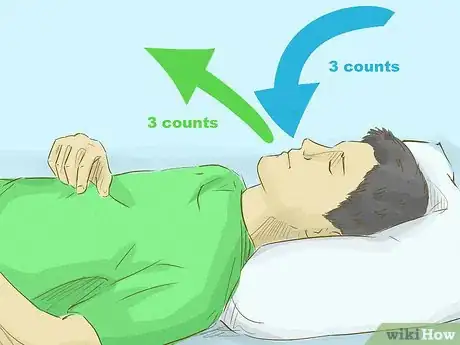
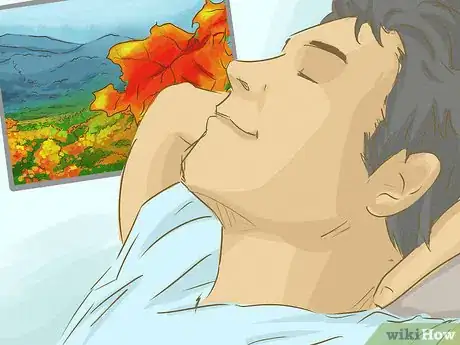

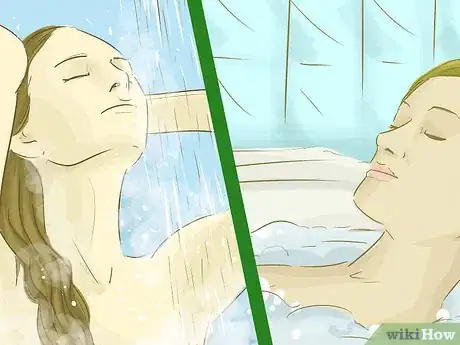
-Step-14-Version-2.webp)
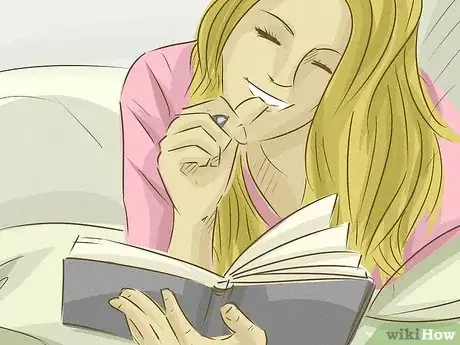
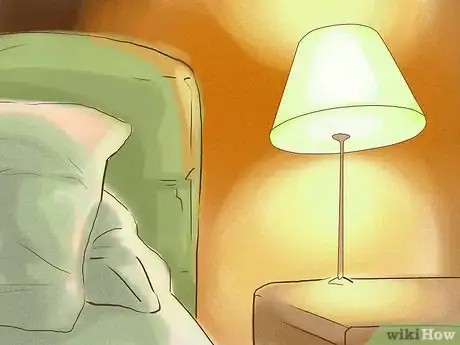

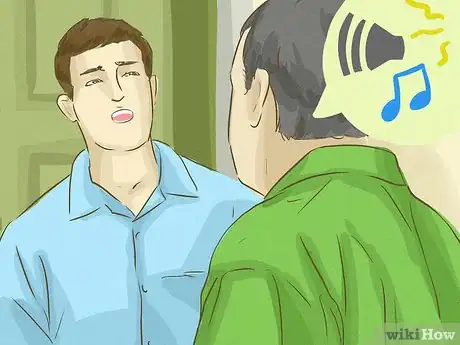
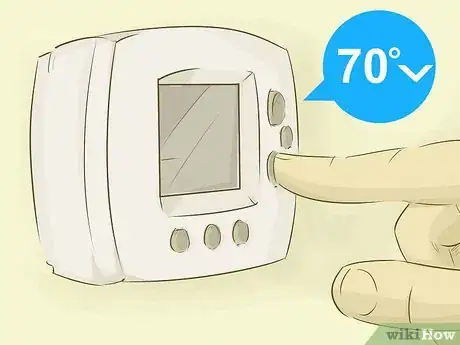
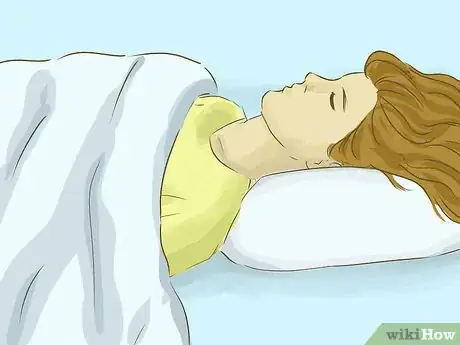
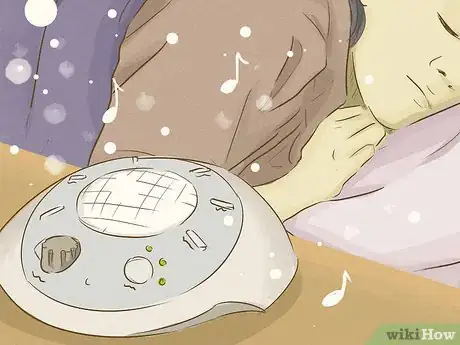
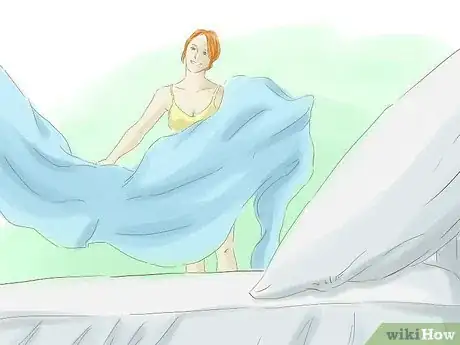

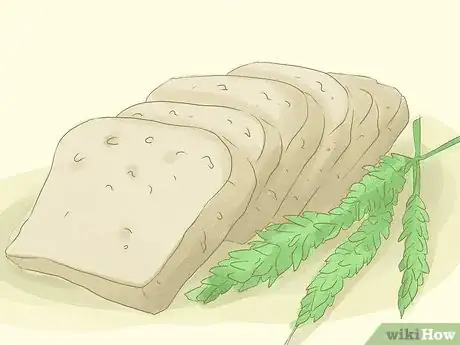
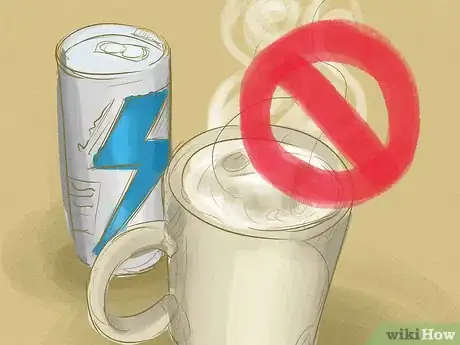


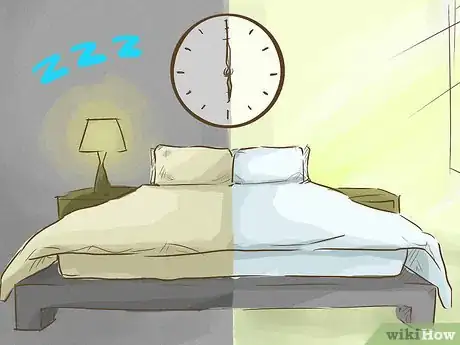
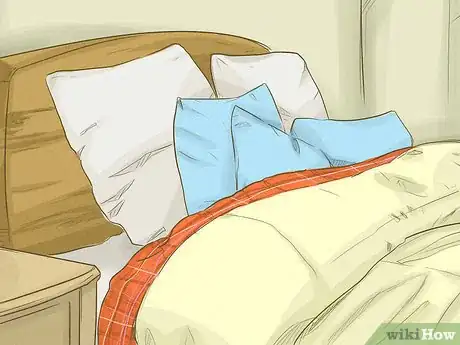
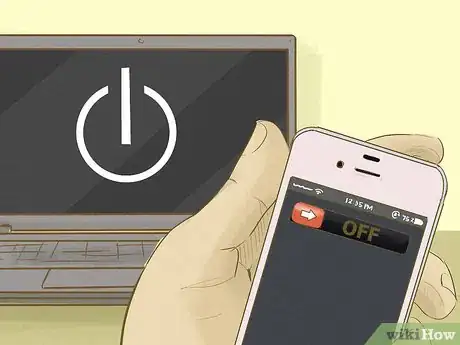
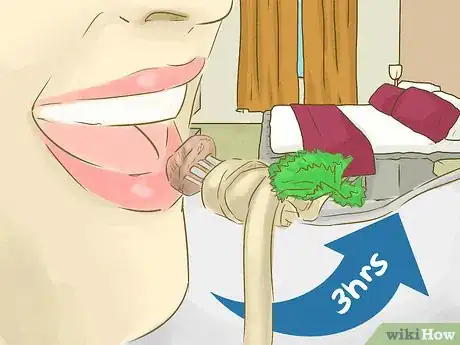
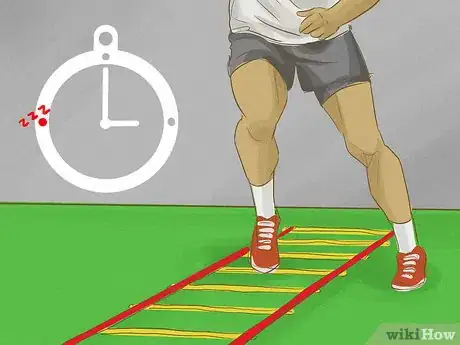
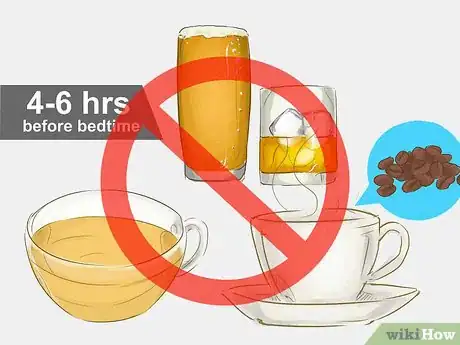
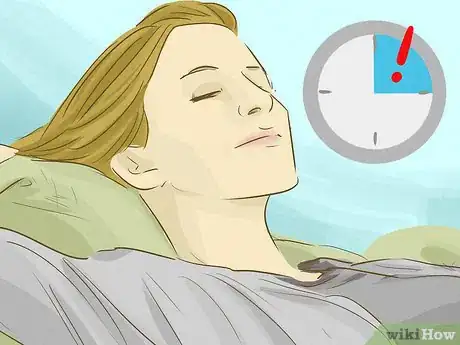
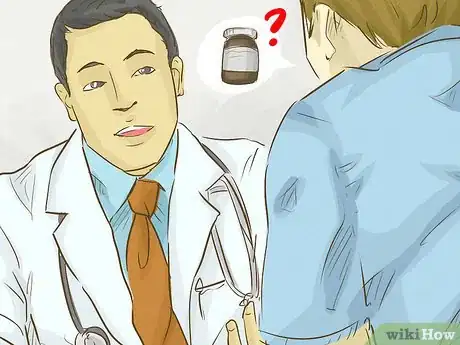



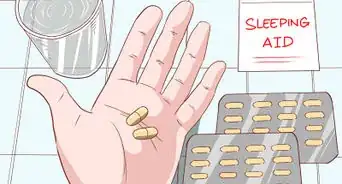


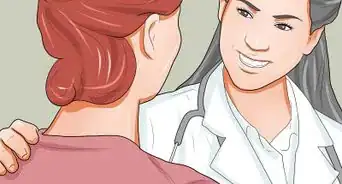


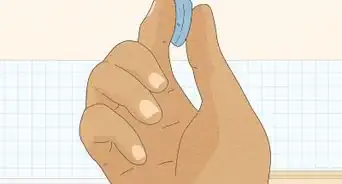

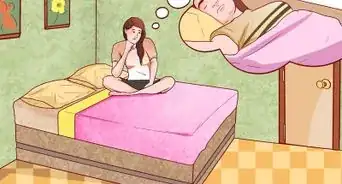








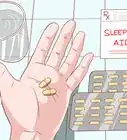




































Medical Disclaimer
The content of this article is not intended to be a substitute for professional medical advice, examination, diagnosis, or treatment. You should always contact your doctor or other qualified healthcare professional before starting, changing, or stopping any kind of health treatment.
Read More...